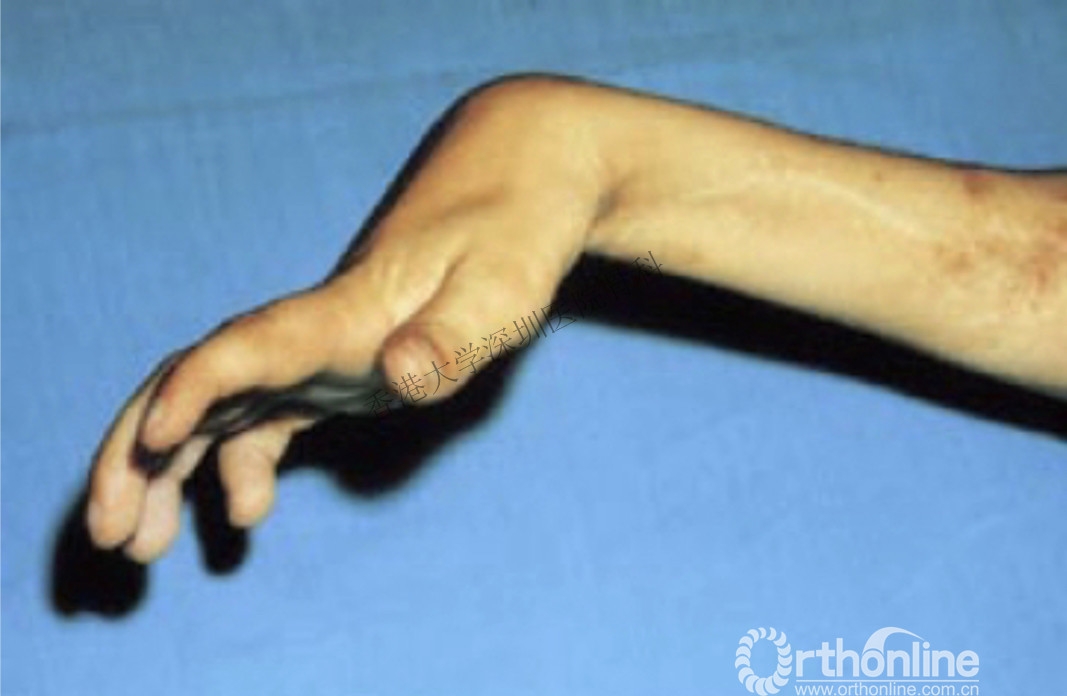心科普
认识情绪,拥抱心灵。
Student Development Support
编者按
“卷”成为2020年的流行词之一,你是不是每天也在“卷”的焦虑中拖延,因为情绪问题影响学习效率?很多年轻人都觉得自己有社交恐惧,你真的了解人际互动的艺术吗?进入大学的你是不是对原生家庭有了更多反思,但又总是雾里看花?贴心的SDS这次又为大家准备了“心科普”系列文章,帮你了解你的情绪,认识你的心灵,在北大更好学习和成长!
PTSD (创伤后应激综合障碍)和 OCD (强迫症)之间有联系吗?
创伤后应激障碍和强迫症可能会相关。
关键点:
l 人们可能会因目睹或经历令人痛苦的事件而发展出PTSD,典型表现是一些事件在大脑中反复重现。

l 大约四分之一的 PTSD 患者同时也被诊断为强迫症。患有强迫症的人经常会有不希望要的想法,并会产生重复的行为来应对。
l 研究表明,有些人在遭受创伤后,更容易出现强迫行为。
创伤后应激综合障碍(PTSD),是通过经历或目睹恐怖事件而发展出的。人们会经历持续的闪回和对创伤事件的反复思考;为了避免这些事件的发生,他们通常会回避那些能让他们想起创伤的情境或事件。
患有 PTSD 的人经常患有其他心理健康问题。事实上,四分之一的 PTSD 患者也患有强迫症(OCD)。患有强迫症的人会反复和持续性地出现一些想法、冲动和行为,这些想法、冲动和行为是侵入性的pdst综合症,并且患者也能感觉到他们是不合适的,他们会为此感到痛苦。此外,他们也经常会进行强迫性的重复行为或进行心理仪式,作为减少焦虑的一种方式。
创伤可能导致强迫行为
研究表明,有些人在遭受创伤后更容易出现强迫行为,因为他们的大脑会误解事件并产生侵入性想法,导致重复行为作为应对方式。
C(一名匿名患者),是一名曾被诊断患有创伤后应激障碍和强迫症的女性。她曾遭受了创伤性的性侵犯。她在一次采访中分享了她的故事:“我会强迫性地每天洗手和洗澡很多次。我觉得很脏pdst综合症,这些洗涤的仪式让我有一种能洗掉发生在我身上的一切肮脏的东西的感觉。有时我洗得太频繁,我的皮肤变得干燥、发红和开裂。但我无法停止这样做,就好像我还能感觉到他身上的气味。我一直反复想着自己很脏。我每天清洁身体通常需要四到五个小时。”
研究也表明童年创伤经历也会引发强迫的思维和行为,从而导致强迫症。D(另一位匿名患者)讨论了她童年的创伤如何影响她成年后的行为:“即使实际上什么也没发生,我也有一种强烈的冲动,想从我的房子里找到一条逃生路线。在我年轻的时候,我酗酒的父亲会发脾气,把他能弄到的任何东西都毁掉。那时我就觉得我住的地方不安全,并试图逃跑几次。现在,作为一个成年人,即使在我的房间里我仍然不能感到安心。我的头脑经常关注奇怪的声音并怀疑会有危险产生,尽管我理性地知道我是安全的。我总是在睡觉前检查门是否锁好,而且要检查好多次,我也沉迷于清洁和洗涤。这些行为是让我感到平静和掌控自己的一种方式。”
可能需要对同时患两种疾病现象进行更多研究

强迫行为通常会妨碍患者正常的社会功能。比如,上文提到的C解释说:“我每天都痴迷于打扫和整理我的房子,无论物品如何摆放都难以称心如意。这些整理占据了我一天中许多时间,但却是一种让我感到平静和安全的方式。我认为一切都有其适当的位置,当有人把我的东西放错地方时,我会非常愤怒。因为我不会邀请朋友到我这里来,所以我朋友很少。现在,即使是我的子女也不想经常来看望我。有时我会因此而感到特别孤独。”
目前没有治疗PTSD 和 OCD 两种共发疾病的指导。对同时患有这两种疾病的人来说,通常这种治疗效果比较差,因为这两种疾病都需要很特殊的治疗。因此,未来我们需要更多的资金和相关研究,以此确保同时患两种疾病的患者得到适当的照顾。
Is There a Link Between PTSD and OCD?
Post-traumatic stress disorder and obsessive compulsive disorder may be related.
KEY POINTS
lPeople may develop PTSD in response to witnessing or experiencing a distressing event. They often have recurring flashbacks of the event.
lAbout a quarter of people with PTSD also have OCD. People with OCD often have unwanted thoughts and develop repetitive behaviors to cope.
lSome people are more prone to developing obsessive behaviours after being exposed to trauma, research suggests.
Post-traumatic stress disorder (PTSD) is triggered by experiencing or witnessing a terrifying event. People experience persistent flashbacks and recurring thoughts of the traumatic event; to avoid these occurrences, they often stay away from triggers or situations where they are reminded of the trauma.

Those with PTSD often suffer from other mental health conditions. In fact, 1 in 4 people who have PTSD also have obsessive-compulsive disorder (OCD). Individuals with OCD experience reoccurring and persistent thoughts, impulses and behaviours that are intrusive and feel inappropriate. They will often carry out obsessive repetitive behaviours or engage in mental rituals as a way of reducing anxiety.
Trauma May Lead to Obsessive Behaviors
Studies have suggested that some people are more prone to developing obsessive behaviours after being exposed to trauma, as their brain misinterprets the event and produces intrusive thoughts that lead to repetitive behaviours as a way to cope.
Christine (name changed to protect anonymity), a woman diagnosed with PTSD and OCD, endured a traumatic sexual assault. She shared her story in an interview:
“I compulsively washed my hands and took showers multiple times a day. I felt dirty and the ritual gave me a feeling of washing away whatever happened to me. Sometimes I washed so often my skin became dry, red and cracked. I couldn’t stop doing it; it was as if I could still sense his odour on me. I kept having repeated thoughts of being dirty. It got so bad that I would wash my clothes and obsessively clean my room multiple times a day as if everything around me was dirty and easily infected. My rituals of cleaning would often take four to five hours a day.”
Studies have shown that traumatic childhood experiences can also trigger obsessive thoughts and compulsions, resulting in OCD. Denise (name changed) discussed how her childhood trauma affects her behaviours as an adult:
“I have a strong compulsion to find an escape route out of my house, even when nothing is actually happening. When I was young, my alcoholic father could lose his temper and wreck whatever he could get his hands on. I didn’t feel safe and escaped a few times. As an adult, I can’t be in my house and feel at ease. My mind often fixates on strange sounds and is suspicious of danger, even though rationally I know I am safe. I’m always checking to see if the doors are locked, often multiple times before I go to sleep. I compulsively organize and list everything. I also clean and wash obsessively. It is a way for me to feel calm and in control.”
Kathy (name changed), a retired grandmother experienced repeated trauma during the Killing Fields Cambodian Genocide where she witnessed her family being buried alive and was subsequently subject to hard labour and starvation in internment camps. In an interview, she shares her compulsive urges to control her environment:
“I collect and keep everything I can get my hands on. I feel a strong compulsion to keep things, out of fear of not having anything to use or eat. I know I am now in Canada and won’t starve or run out of things, but I can’t help myself. My children complain that I have a house full of stuff I don’t need: everything from disposable plastic containers to cardboard boxes. But I feel calmer and safer when I have many things around.”

More Research Is Needed on Co-Occurring PTSD and OCD
OCD behaviours can often get in the way of social functioning. Kathy explained:
“I clean and reorganize my house obsessively each day, never satisfied with how things are placed. It occupies many hours of my day. It’s a way for me to feel calm and safe. Everything has its proper place and I would get explosive anger when anyone misplaces my stuff. I don’t have many friends because I don’t invite them to my place. Now even my adult children don’t want to visit often. I sometimes feel lonely because of this.”
Currently, there are no guidelines for treating comorbid PTSD and OCD. Often, people with both diagnoses are treated less effectively since both conditions require specific treatment. More funding and research is required to ensure those affected receive proper care.
往期回顾:
翻译 |田光辉
校对|马超
图片来源于网络
编辑|赵天宇
限 时 特 惠: 本站每日持续更新海量各大内部创业教程,加站长微信免费获取积分,会员只需38元,全站资源免费下载 点击查看详情
站 长 微 信: thumbxmw

